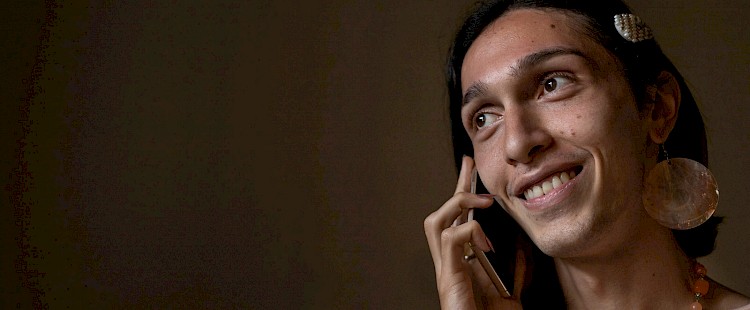Our research suggests that those older LGBT+ people who feel most lonely can be less comfortable with their sexuality, struggling with feelings that they don’t belong and feeling anxious about meeting new people. They may not get out very much or feel at ease even in their own neighbourhoods. Being friendly and engaging in your calls is as important as chatting about LGBT+ topics, so remember that the older person you are matched with could want to talk about anything.
When asked about the services we should offer for older LGBT+ people, one of our research respondents said: “If you can just ensure that you are supportive, without actually talking about anyone’s individual circumstances. Be aware that whatever discussions you’re having, that people are supportive and make it clear that all these people are welcome.”
You could ask your call companion about their hobbies (now and previously); their working lives; the places that they’ve visited; their childhoods and so on. As you build a rapport, they may begin to talk about experiences relating to their sexuality or gender identity more naturally.
Remember that words that are acceptable today could be damaging for an older person. As an example, many younger LGBT+ people now choose to identify as ‘queer’, but the term hasn’t been universally reclaimed. It was an extremely offensive homophobic slur in the past and some people still consider it as such.
If you wish to use words like this in conversation, we suggest that best practice would be to find out how your call companion likes to refer to themselves, and to ask if your companion is comfortable with the word you use. For example, “Is it okay with you if I use the word ‘queer’ when referring to myself?”
Not being sure of the correct terminology can be stressful when trying to build a friendship over the phone. Some older LGBT+ people don’t like to use any terms that explicitly refer to their sexual orientation, often due to the historical need for discretion. We advise that you let your call companion take the lead on labels.
Don’t be afraid to ask directly if you are in any doubt: “Are you comfortable with me using the word lesbian/gay/bi/trans in relation to you?”
Other terms you might hear include ‘women like us’ and, for men, the light-hearted ‘friends of Dorothy’. Keep in mind that some older people may never have ‘come out’ in the way that we think of it today.
At least initially, referring to yourself as a call companion and the service as a telephone befriending service (as opposed to rainbow call companions) will suffice.
Bear in mind that while the LGBT+ community is often referred to as a group, we should not assume that all LGBT+ people are the same, or even that they want to be thought of in terms of the same umbrella. For this reason, we will ask older people if they have a preference on who their call companion might be.
Remember that, whilst some conversations may be challenging, they should also be fun and rewarding for both you and the older person you are matched with. Building intergenerational friendships is incredibly valuable.
Next steps
You’ve completed the rainbow call companions section of the training. The next part of your training will be the call companion role specific training.
Please complete:
There are also some general useful tips and guidance that you can access on the quick guide to become a successful call companion section.
Please check the FAQs on our website for more information and if you still have questions, or there is anything you don’t understand, please feel free to email knowledge@reengage.org.uk.
